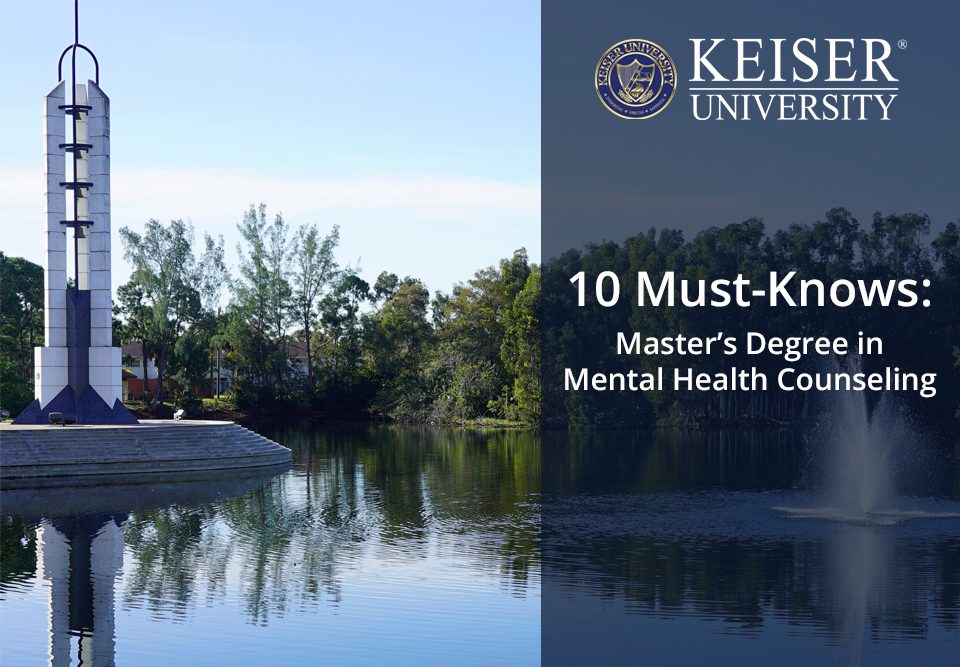Right now, there is a significant shortage of mental health professionals in the United States. If you are looking for a fantastic career where you will spend your time helping people, you might want to become a mental health counselor.
To be effective in this role, you must learn the skills necessary to help people with mental health issues. There are different ways you can become a mental health counselor, and you need to find the right educational program to help you. What do you need to know about earning your masters in mental health counseling?
Take a look at some of the most important points below to help you find a program that will give you the skills you need to advocate for your patients.
1. What Is Clinical Mental Health Counseling?
Mental illness is a significant issue in this country, and as a professional therapist specializing in clinical mental health counseling, you will help people address these issues. For example, you may go back to school to earn a degree in counseling, or you might already have a bachelor’s degree in that area. Regardless, as a clinical mental health counselor, you will work with individuals who have been diagnosed with a range of mental health issues.
Some of the most common reasons people see a clinical mental health counselor include:
- Depression
- Anxiety
- Anger management
- Trauma and PTSD
Some of these sessions will take place one-on-one while others might take place in group therapy.
2. How Do I Get a Master’s Degree in Counseling?
If you are interested in earning a master’s degree in counseling, there are a few steps involved. They include:
- A master’s degree in counseling is a graduate program, so you will need an undergraduate degree to qualify for admission.
- Evaluate all the options available to you. Some programs take longer to complete, some are more competitive than others and some will specialize in a specific area of mental health counseling.
- If you have a program you want to complete, you need to be admitted into the graduate school. After you have been accepted to that program, you can sign up to start taking classes.
- Finally, you will need to complete all the requirements to graduate. It is not unusual for a master’s degree in counseling to take approximately two years to finish.
Once you are done with the program, you can apply for jobs and start helping people.
3. How Do I Choose the Right Educational Program for My Needs?
As you research the various master’s degree programs in counseling available, you will quickly realize that there are plenty of choices. You need to think about which one is best for your needs. Some of the most important factors to consider include:
- Consider what you want to do upon graduation. You must choose an educational program that will make it easier for you to get a job in your chosen field.
- Find out what prior students have to say about a specific program. If previous students are happy with the results of the program, there is a good chance you will be happy as well.
- Decide how much flexibility you require when reviewing programs. You may want to find a program that allows you to continue working while taking classes, making something like an online graduate program especially attractive.
- Of course, you also need to think about the cost of the program. There is a chance that financial aid packages could make it easier for you to afford your education.
4. How Long Does It Take to Get My Master’s Degree in Counseling?
Most master’s degrees in counseling take approximately two years to finish, but you might be able to take more classes per semester, making it easier for you to graduate sooner. Conversely, if you need to take classes part-time to accommodate work, for example, the program could take longer than two years.
5. Can I Go Back to School Online?
If you are interested in earning a master’s degree in counseling online, there are options available. There are some benefits to taking your classes online, including:
- You can consider more programs because you don’t have to worry about attending classes on a campus that is physically near you.
- You can save money because you don’t have to worry about driving and parking on campus.
- If you are watching a recorded lecture, you might be able to pause it and take notes, which could make it easier for you to keep up with the material.
6. Can I Listen to Lectures at Night?
It is also possible that there are some programs that allow you to go to school at night. There are some situations where you might need to attend a live session during the day, but in general, many online programs pre-record lectures, allowing you to watch them when it suits your schedule.
One of the biggest benefits of listening to lectures at night is that you can work during the day. If you are concerned about the financial impact of returning to school, continuing to work while you take classes can help ease the burden.
7. What Will I Learn in a Master’s in Counseling Program?
There is a lot that you will learn if you decide to earn a master’s degree in counseling. Even though every program is different, some of the most important topics covered include:
- You will learn the basics of different types of mental health issues, including clinical depression, generalized anxiety disorder, schizophrenia and bipolar affective disorder.
- The program should cover emerging research in mental health counseling, such as new therapeutic approaches.
- You will also have an opportunity to learn more about crisis counseling so that you will be equipped to help those suffering mental health emergencies.
- You will learn how to develop a comprehensive treatment plan to help someone who has been diagnosed with mental health issues.
These are just a few of the many things you will learn about if you decide to go back to school for a master’s degree in counseling. Some programs offer specializations, so you should always take a look at a few of the syllabi involved in the program before you decide which one you want to sign up for.
8. Do I Need a Mental Health Counselor License?
While a degree is required to become a counselor, not all employers require licensure. However, a license can augment your application by demonstrating a special set of skills an employer might be looking for. Make sure you research the licensure requirements in the state you will practice to understand if the program fits your needs and is approved by the appropriate accrediting body.
9. What Can I Do with a Master’s Degree in Mental Health Counseling?
There are a few options available if you decide to earn a graduate degree in mental health counseling. For example, you might want to join a practice where you help individuals diagnosed with mental health issues over longer time periods and multiple appointments. You might decide to work in a hospital setting, assisting people with urgent psychiatric emergencies. You could become a group therapist, where you will help people in a group setting. Or you could earn this degree and use it to conduct research in the field. One of the biggest benefits of earning this graduate degree is that it opens a lot of doors for you.
10. Is A Master’s Degree in Mental Health Counseling Worth It?
Yes. Getting a master’s degree in mental health counseling is worth it if you are confident that you want to spend your career helping people with mental health issues. Some of the biggest reasons why you should consider earning this degree include:
- You will immediately become more competitive when applying for jobs. Future employers will see that you have a specific set of skills that you can use to help people.
- You can also pursue a range of career paths. For example, you might decide to open your own practice, or you might decide to join a practice that is already in business. You might decide to join a large hospital or a small clinic. You may even decide to focus on a specific type of patient, like children or those impacted by a specific type of issue.
- There is an immense sense of fulfillment you will get by completing a graduate program. Earning a master’s degree in mental health counseling is challenging and will be incredibly gratifying once you graduate.
In the end, it is worth it to pursue a master’s degree in counseling if you want to work as a counselor. At the same time, there are lots of programs available, and you need to choose the right one to help you reach your goals.
Explore Clinical Mental Health Counseling at Keiser
Are you interested in pursuing a career as a mental health counselor? If so, we have a graduate program that could be right for you. The clinical mental health counseling program at Keiser University’s Graduate School is taught by industry professionals with extensive experience who will provide you with skills you can use to be the best possible advocate for your patients. To learn more about the programs we have available, request more information today, and consider applying to our master’s program.






 The instructors at Keiser University impacted my life. They believed in my ability to become a great graphic designer, regardless of how I felt about my skills. KU helped to prepare me for the real world and got me to where I am today.
The instructors at Keiser University impacted my life. They believed in my ability to become a great graphic designer, regardless of how I felt about my skills. KU helped to prepare me for the real world and got me to where I am today.
